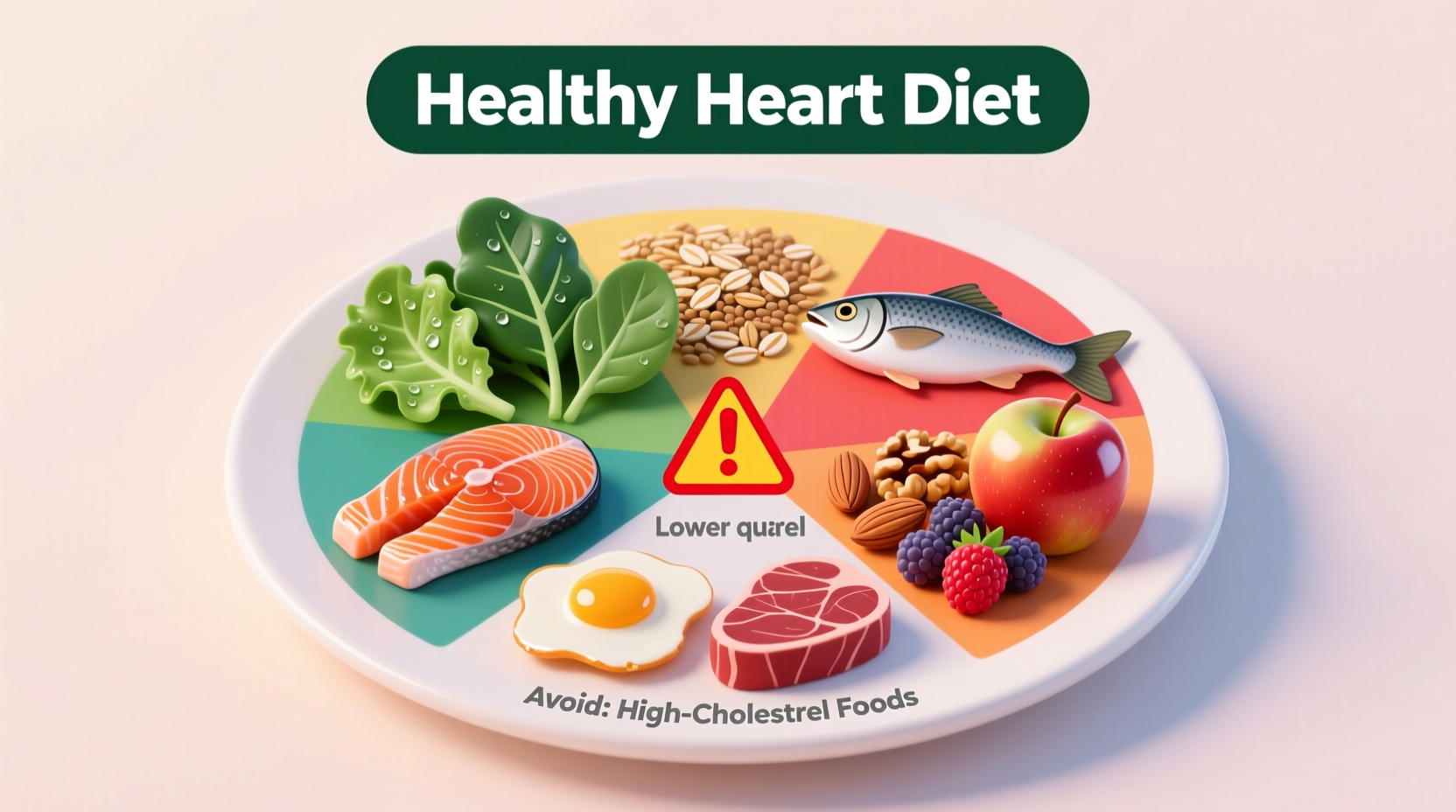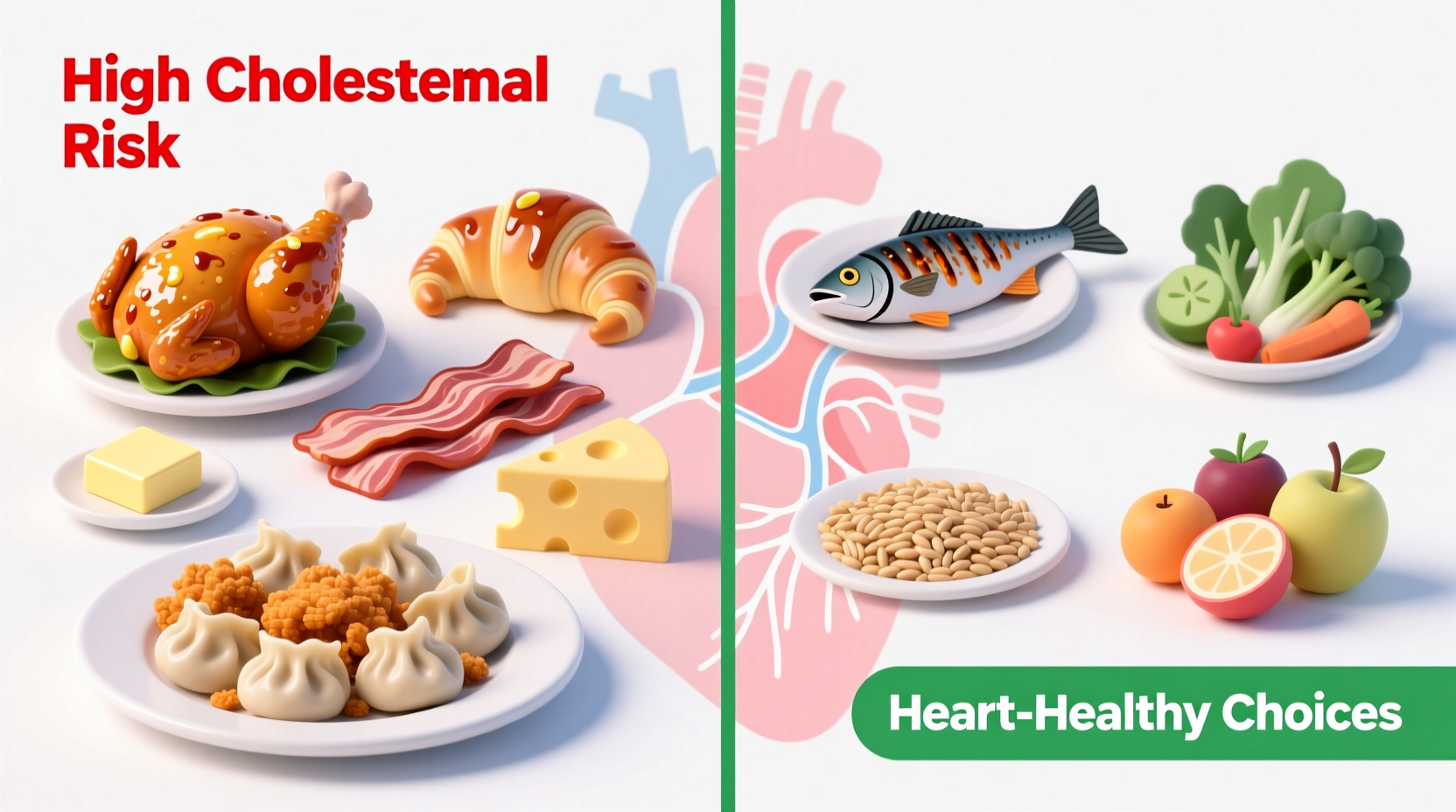Discover how everyday foods silently sabotage your heart health. By eliminating just three of these cholesterol-raising culprits, you could see measurable improvements in your lipid panel within two months. This guide reveals exactly which foods to cut from your diet and provides practical, chef-tested swaps that actually satisfy your cravings.
Why Certain Foods Wreck Your Cholesterol Levels
Cholesterol management isn't just about avoiding eggs anymore. Modern research shows saturated and trans fats have far greater impact on LDL ("bad") cholesterol than dietary cholesterol itself. When you consume these fats, your liver produces more LDL particles that can build up in arteries. The American Heart Association confirms that replacing just 5% of saturated fat calories with unsaturated fats reduces heart disease risk by 25%.

The Cholesterol Danger Zone: Top 5 Foods to Eliminate
These foods consistently appear in clinical studies as major contributors to elevated LDL levels. What makes them particularly dangerous is how easily they hide in "healthy"-labeled products.
| Food Category | Cholesterol Impact | Hidden Sources | Smart Swap |
|---|---|---|---|
| Fried foods | Raises LDL by 12% per serving (NIH study) | "Air-fried" snacks, tempura, fried chicken | Oven-roasted with olive oil spray |
| Processed meats | Increases heart disease risk 18% (Mayo Clinic) | Delicatessen slices, frozen meals, pizza toppings | Uncured turkey breast, mushroom bacon |
| Full-fat dairy | Boosts LDL 7-10% per daily serving | Creamers, cheese sauces, yogurt parfaits | Almond milk, cashew cheese, Greek yogurt |
| Shortening-based baked goods | Trans fats lower HDL by 20% (AHA) | Pie crusts, biscuits, non-dairy creamer | Avocado oil-based recipes, date-sweetened treats |
| Packaged snacks | Just 2g trans fat raises heart risk 23% | Crackers, microwave popcorn, granola bars | Homemade trail mix, roasted chickpeas |
Reading Labels Like a Cholesterol Detective
Don't be fooled by "cholesterol-free" claims. These products often contain artery-clogging saturated fats. Always check the nutrition panel for:
- "Partially hydrogenated oils" - even in "0g trans fat" products (allowed under 0.5g/serving)
- Saturated fat content - aim for less than 5% DV per serving
- "Shortening" or "palm oil" in ingredients list
When grocery shopping, remember that products labeled "low-fat" frequently replace fat with sugar - which also harms cholesterol levels. The FDA now requires trans fat disclosure, but loopholes remain for products with small serving sizes.
Practical Swaps That Actually Satisfy
Eliminating problem foods doesn't mean sacrificing flavor. As a chef specializing in heart-healthy European cuisine, I've developed these proven substitutions:
- Instead of butter: Whip avocado with lemon juice for spreadable richness (works perfectly on toast)
- Instead of cream: Blend soaked cashews with nutritional yeast for creamy sauces
- Instead of fried chicken: Double-dredge in almond flour and bake at 425°F for crispy texture
These techniques leverage natural fats that actually improve cholesterol profiles. Mediterranean diet studies show that replacing saturated fats with monounsaturated fats from olive oil and nuts can raise HDL ("good") cholesterol by 8-10%.
When Moderation Isn't Enough: Critical Boundaries
For most people, occasional indulgences won't derail progress. However, these situations require strict avoidance:
- Those with familial hypercholesterolemia (genetic condition)
- Individuals with existing heart disease or recent cardiac events
- People whose LDL remains above 130 mg/dL despite medication
The National Lipid Association emphasizes that for high-risk patients, even small amounts of trans fats significantly increase cardiovascular events. Always consult your doctor about personalized thresholds.
How Cholesterol Dietary Advice Has Evolved
Understanding the timeline of cholesterol research prevents confusion about current recommendations:
- 1980s: Focus solely on dietary cholesterol (avoid eggs)
- 2000s: Recognition that saturated fats have greater impact
- 2013: FDA bans artificial trans fats in processed foods
- 2020s: Current guidelines emphasize replacing bad fats with good fats rather than total fat reduction
This evolution explains why older relatives might still warn against eggs while modern research shows moderate egg consumption (1-2 daily) has minimal impact for most people. The real villains are industrial trans fats and excessive saturated fats.
Your 24-Hour Cholesterol-Friendly Meal Plan
Implement these changes immediately with this practical menu:
- Breakfast: Oatmeal with walnuts and berries (avoids butter-based pastries)
- Lunch: Lentil soup with olive oil drizzle (replaces cream-based soups)
- Snack: Apple slices with almond butter (swaps processed crackers)
- Dinner: Baked salmon with roasted Brussels sprouts (uses heart-healthy fats)
This plan provides 30g of fiber daily - proven to lower LDL by binding cholesterol in the digestive tract. The Mayo Clinic confirms that consistent high-fiber eating reduces cholesterol more effectively than medication for some patients.











 浙公网安备
33010002000092号
浙公网安备
33010002000092号 浙B2-20120091-4
浙B2-20120091-4